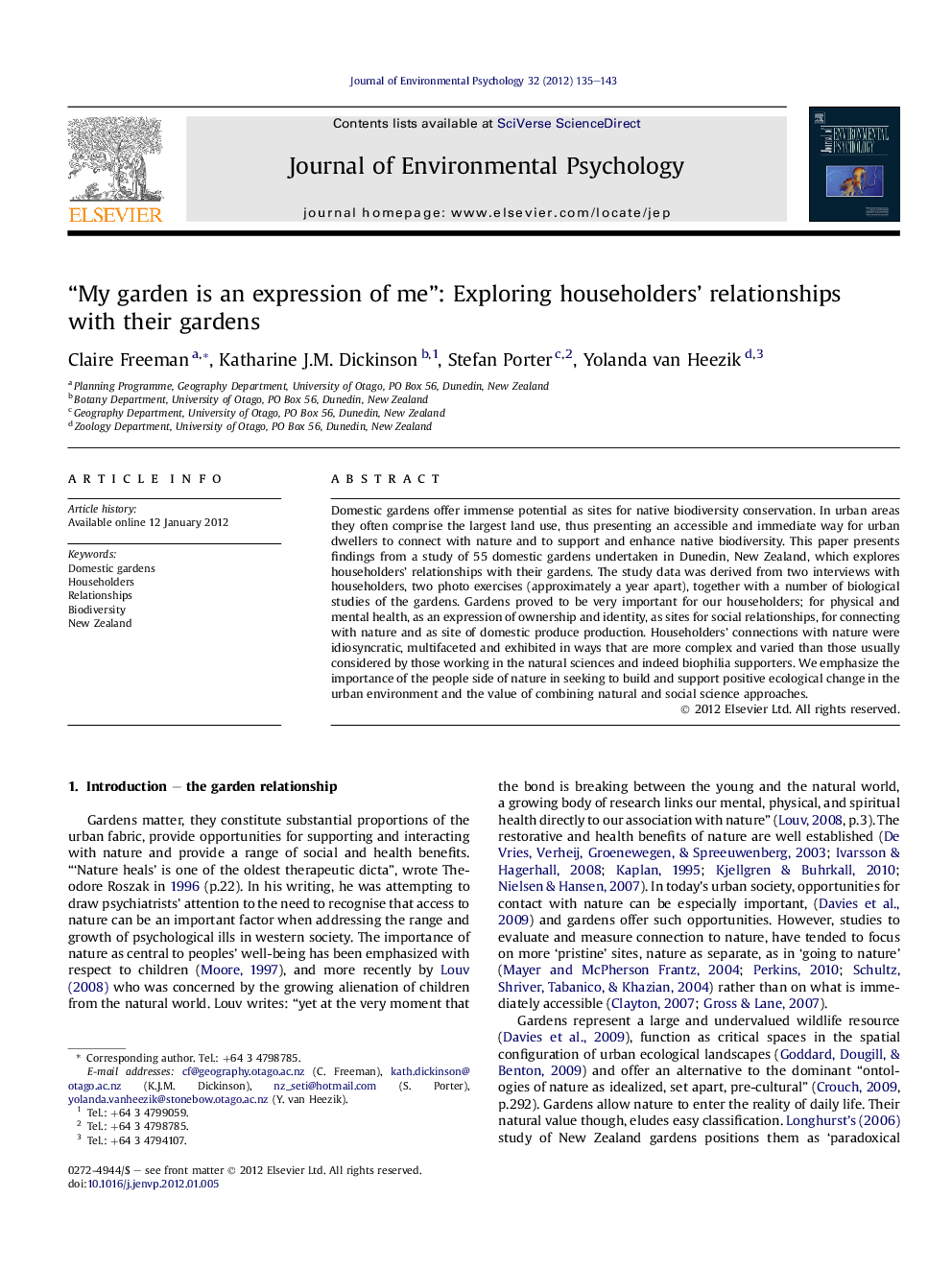| Article ID | Journal | Published Year | Pages | File Type |
|---|---|---|---|---|
| 885648 | Journal of Environmental Psychology | 2012 | 9 Pages |
Domestic gardens offer immense potential as sites for native biodiversity conservation. In urban areas they often comprise the largest land use, thus presenting an accessible and immediate way for urban dwellers to connect with nature and to support and enhance native biodiversity. This paper presents findings from a study of 55 domestic gardens undertaken in Dunedin, New Zealand, which explores householders' relationships with their gardens. The study data was derived from two interviews with householders, two photo exercises (approximately a year apart), together with a number of biological studies of the gardens. Gardens proved to be very important for our householders; for physical and mental health, as an expression of ownership and identity, as sites for social relationships, for connecting with nature and as site of domestic produce production. Householders' connections with nature were idiosyncratic, multifaceted and exhibited in ways that are more complex and varied than those usually considered by those working in the natural sciences and indeed biophilia supporters. We emphasize the importance of the people side of nature in seeking to build and support positive ecological change in the urban environment and the value of combining natural and social science approaches.
► Gardens offer substantial potential to support people's relationships with nature. ► Householders' connections with nature are idiosyncratic, multifaceted and complex. ► Householders show innate willingness to demonstrate an environmental ‘duty of care’. ► Understanding householders' relationships can aid in supporting urban ecology. ► Gardens deserve the attention of those working both in natural and social sciences.
